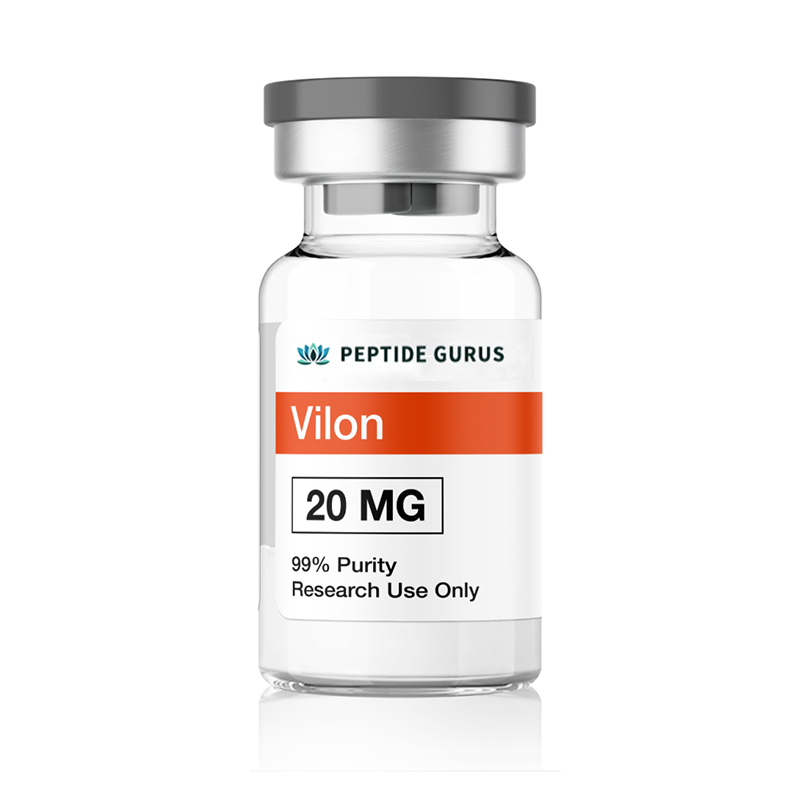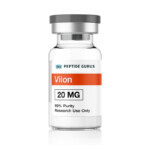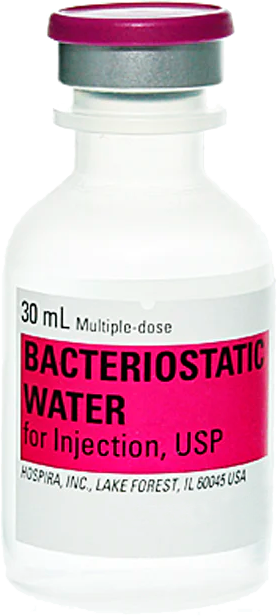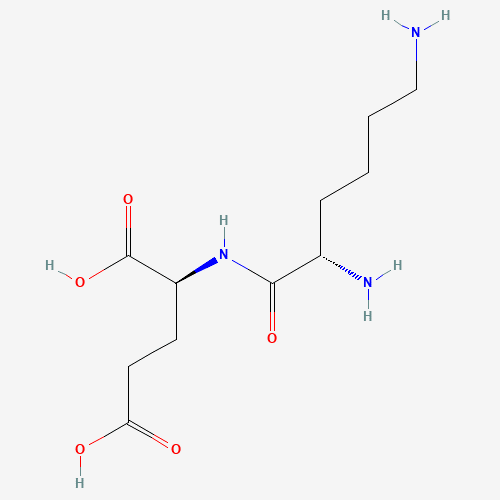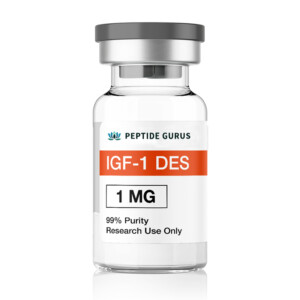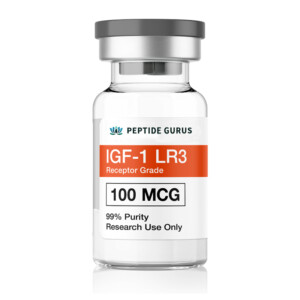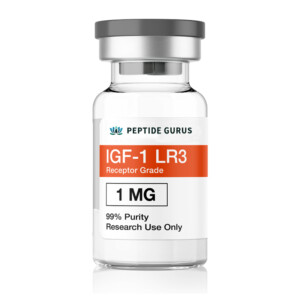Gratis (1) 30 ml de agua bacteriostática
con pedidos calificados sobre $500 Dólar estadounidense.
(excluye productos en cápsulas, péptidos cosméticos, códigos promocionales y envío)
Vilon is a potent immunomodulator and anti-aging bioregulator peptide with ample research to back its benefits. There are also high levels of evidence that Vilon may help prevent/reduce the risk of cancer development and progression. Curiosamente, research has shown that Vilon appears to provide better anti-aging effects when administered early in life and at consistent, low doses. These findings may help open the door to better anti-aging research and help scientists to better understand how epigenetic regulation plays an important role in longevity.
Uso del producto: Este PRODUCTO ESTÁ DISEÑADO ÚNICAMENTE COMO QUÍMICO DE INVESTIGACIÓN. Esta designación permite el uso de productos químicos de investigación estrictamente para pruebas in vitro y experimentación de laboratorio únicamente.. Toda la información del producto disponible en este sitio web es solo para fines educativos.. La introducción corporal de cualquier tipo en personas o animales está estrictamente prohibida por la ley.. Este producto sólo debe ser manipulado por personal autorizado., profesionales cualificados. Este producto no es un medicamento., alimento, o cosmético y no puede estar mal etiquetado, mal utilizado o mal etiquetado como droga, comida o cosmética.
Vilon
At just two amino acids in length, Vilon is the shortest peptide known to have biological activity. Research shows that Vilon has potent anti-aging effects and that it is a powerful regulator of immune function. There is also good evidence that Vilon helps to regulate the vascular system and promotes hemostasis. Vilon has been shown to reduce the incidence and growth of spontaneous tumors, though its role as an adjuvant in cancer treatment (as opposed to prevention) has been called into question. En general, Vilon has several staunch advocates, such as Dr. Vladímir Anísímov, who feel that the peptide is a useful geroprotective agent.
Vilon and the Immune System
Research out of Russia indicates that Vilon is a potent regulator of chromatin structure. One study found that Vilon:
• induces unrolling of chromatin,
• activates synthetic processes via reactivation of ribosomal genes in the unrolled chromatin,
• releases repressed genes, y
• does not cause decondensation of pericentromeric structural chromatin[1].nduces unrolling of chromatin,
The net result of the changes that Vilon causes to DNA is reactivation of genes that are otherwise silenced. En general, chromatin is found in either the wound (heterochromatin) or unwound (euchromatin) states. Heterochromatin cannot be accessed by the apparatus that turns genes into proteins and thus functional components of the cell. Genes in these regions of DNA are simply unavailable for protein production.
En general, chromatin helps to regulate which genes are available for transcription and is thus one way that different-cells can have different functions or that the same cells can have different functions over time. Desafortunadamente, chromatin condensation is also something that occurs as a result of aging and senescence and is at least one reason why our cells and tissues lose function as we get older.
Similar to its activity in lymphocytes, Vilon has been shown to activate interluekin-2 signaling in cells of the spleen[3]. Interleukin-2 is important in coordinating the immune response to microbial infection and helps to prevent autoimmune reactions. By activating lymphocytes and splenocytes while boosting natural protection against autoimmune reactions, Vilon restores the immune system to a more active state and may even be useful in developing treatments for autoimmune diseases.
Adding to its ability to prevent autoimmune reactions is the role of Vilon in the thymus. Research in thymus cultures shows that Vilon increases the proliferation of CD5 T-cells. CD5 is a marker of mature T-helper cells as well as cytotoxic CD8 T-cells. The former helps to regulate the immune system and prevent autoimmune reactions, while the latter is one of the most potent anti-microbial cells in the body[4].
Curiosamente, Vilon appears to only reactivate immune functions via genes that have been silenced by changes in chromatin. It does not appear to activate genes that would naturally be silent in the cells it affects. En otras palabras, Vilon does not turn lymphocytes into neurons by activating genes that would normally not be active in healthy lymphocytes. Instead, the peptide appears to boost activity in the immune system while simultaneously helping to prevent autoimmune reactions.
Vilon and Cancer
As pointed out above, Vilon helps to reduce the incidence of cancer in mouse models, which is at least one way in which it prolongs average lifespan. Additional research shows that Vilon not only prevents tumors from forming, but inhibits their growth after they are present[5]. This suggests that Vilon may be both an effective chemotherapeutic in its own right, as well as a potential additive to existing cancer treatments. In the future, Vilon may be a standard addition to everything from chemotherapy to radiation treatment and surgery.
At least one study, out of Russia, contradicts the claim that Vilon may be a useful adjuvant to chemotherapy. The works shows that the combination of Vilon and platinum-based chemotherapeutic agents is problematic rather than synergistic[6]. Desafortunadamente, this study used only one specific type of chemotherapy and was limited in scope, so the results cannot be generalized. It remains to be seen if Vilon is only effective against cancer on its own or if the peptide can be added to other treatment regimens to boost results.
Vilon and Aging
Research in mice shows that subcutaneous administration of Vilon increases physical activity and endurance while helping to reduce the risk of cancer. These two effects resulted in longer lifespan in the treated mice, suggesting that Vilon may be a legitimate anti-aging peptide[7]. This is especially encouraging given that it produced no adverse effects in the mice following long-term administration.
Curiosamente, the research shows that the earlier Vilon is administered, the greater its effects seem to be. En otras palabras, giving Vilon to young mice enhances lifespan more than if Vilon is not administered until the mice are much older. This same effect was seen in early studies looking at crude thymic and pineal extracts given to mice to slow down aging[8]. The speculation is that Vilon and similar peptides, when administered late in life, can reverse senescence in existing cells but can obviously do nothing for cells that have already been eliminated through apoptosis. By administering Vilon 20mg early in life, cells get the greatest amount of protection and so turnover is slowed down. The result is that more cells stay healthy for longer periods of time, slowing the need to replace them and preserving limited stem cell lines.
Vilon’s anti-aging effects seem to extend to GI function as well, where the peptide has been shown to improve the activity of certain enzymes in the Gi tracts of older mice. The peptide also appears to improve barrier function, thus reducing the incidence of leaky gut, enhancing disease resistance, and improving the overall health of the GI tract in older mice[9]. Research shows that Vilon thereby helps to improve glucose and glycine absorption in the small intestine of older rats[10]. These features of Vilon may help to maintain nutrient extraction with age, thereby improving overall well-being and perhaps enhancing longevity.
Dr. Vladimir N. anisimov, who has been researching aging and cancer development since the 1970s, points out that the thymus is one of two glands (the other being the pineal gland) that plays an important role in regulating aging. The healthier the thymus is, the healthier we are as individuals. Por supuesto, Vilon is a thymic peptide and affects cells, like lymphocytes, that are produced in and mature in the thymus. Dr. Anisimov is a staunch advocate for using peptide bioregulators in the prevention of cancer[11]. He is a close colleague of Dr. Vladimir Khavinson.
Vilon in the Heart and Kidneys
The effect of Vilon on the vasculature has been less well studied, but there is some work to suggest that it may have a beneficial effect. Research in mice shows that Vilon changes the expression of more than 36 different genes within the heart. When combined with Epithalon, this number jumps to 144 genes[12]. These findings suggest that, por lo menos, Vilon has the ability to alter gene expression patterns in the cardiovascular system, a fact that may improve hemodynamic function.
De hecho, research in kidneys, highly vascular organs, shows that Vilon decreases concentrations of transforming growth factor-beta(1) and thus the permeability of microvessels. The net result is improved hemostasis during kidney failure, suggesting that Vilon does, En realidad, have a beneficial effect on the vascular system[13].
Además, research in elderly patients with diabetes shows that Vilon can help to optimize coagulation by increasing levels of the natural anticoagulants antithrombin III and protein C while also stimulating fibrinolysis[14]. The result is fewer blood clots in a population prone to clotting and the serious consequences that follow. This further supports the idea that Vilon plays an important role in regulating the vascular system.
Vilon Summary
Vilon is a potent immunomodulator and anti-aging peptide with ample research to back its benefit. There are also high levels of evidence that Vilon reduces the risk of cancer development and progression. Curiosamente, Vilon appears to provide better anti-aging and anti-cancer effects when administered early in life and at chronic, low doses. These features may help open the door to better anti-aging research and help scientists to better understand how epigenetic regulation plays an important role in longevity.
Vilon exhibits minimal side effects, baja biodisponibilidad oral y excelente subcutánea en ratones. La dosis por kg en ratones no se aplica a los humanos. Vilon for sale at
Autor del artículo
La literatura anterior fue investigada, editado y organizado por el Dr.. mi. logan, MARYLAND. Dr. mi. Logan tiene un doctorado de Facultad de Medicina de la Universidad Case Western Reserve y una licenciatura. en biología molecular.
Autor de revista científica

Profe. Se hace referencia a Vladimir Khavinson como uno de los principales científicos involucrados en la investigación y el desarrollo de Livagen.. De ninguna manera este médico/científico respalda o defiende la compra, venta, o uso de este producto por cualquier motivo. No hay afiliación o relación., implícito o no, entre
Citas referenciadas
- [1] t. Lezhava et al., “Bioregulator Vilon-induced reactivation of chromatin in cultured lymphocytes from old people," Biogerontology, volumen. 5, No. 2, páginas. 73–79, 2004, doi: 10.1023/B:BGEN.0000025070.90330.7f.
- [2] t. Lezhava, j. Monaselidze, t. mi desaparición, norte. Dvalishvili, y T. Buadze, “Los biorreguladores peptídicos antienvejecimiento inducen la reactivación de la cromatina," Mediterráneo georgiano. Noticias, No. 133, páginas. 111–115, Abr. 2006.
- [3] t. B. Kazakova et al., “In vitro effect of short peptides on expression of interleukin-2 gene in splenocytes," Toro. Exp. biol. Con., volumen. 133, No. 6, páginas. 614–616, Jun. 2002, doi: 10.1023/a:1020210615148.
- [4] norte. norte. Sevostianova et al., “Immunomodulating effects of Vilon and its analogue in the culture of human and animal thymus cells," Toro. Exp. biol. Con., volumen. 154, No. 4, páginas. 562–565, Feb. 2013, doi: 10.1007/s10517-013-2000-0.
- [5] V. k. Khavinson and V. norte. anisimov, “A synthetic dipeptide vilon (L-Lys-L-Glu) inhibits growth of spontaneous tumors and increases life span of mice," Dokl. biol. ciencia. Proc. Acad. ciencia. USSR Biol. ciencia. Sect., volumen. 372, páginas. 261–263, Jun. 2000.
- [6] oh. PAG. Barykina, V. V. Iuzhakov, norte. I. Chalisova, I. METRO. Kvetnoĭ, y S. S. Konovalov, “[Combined effect of vilon and cyclophosphane on tumor transplants and lymphoid tissue explants in mice and rats of various age]," Avanzado. gerontol. Uspekhi Gerontol., volumen. 12, páginas. 128–131, 2003.
- [7] V. k. Khavinson et al., “Effect of vilon on biological age and lifespan in mice," Toro. Exp. biol. Con., volumen. 130, No. 7, páginas. 687–690, Jul. 2000, doi: 10.1007/BF02682106.
- [8] V. norte. anisimov, A. S. Loktionov, V. k. Khavinson, y V. GRAMO. Morózov, “Effect of low-molecular-weight factors of thymus and pineal gland on life span and spontaneous tumour development in female mice of different age," Mech. Ageing Dev., volumen. 49, No. 3, páginas. 245–257, Sep. 1989, doi: 10.1016/0047-6374(89)90075-4.
- [9] V. k. Khavinson, norte. METRO. Timofeeva, V. V. de Malí, l. A. Gordova, y un. A. Nikitina, “Effect of vilon and epithalon on activity of enzymes in epithelial and subepithelial layers in small intestine of old rats," Toro. Exp. biol. Con., volumen. 134, No. 6, Art. No. 6, Dic. 2002.
- [10 ]V. k. Khavinson, V. V. Egorova, norte. METRO. Timofeeva, V. V. de Malí, l. A. Gordova, y l. V. Gromova, “Effect of Vilon and Epithalon on glucose and glycine absorption in various regions of small intestine in aged rats," Toro. Exp. biol. Con., volumen. 133, No. 5, páginas. 494–496, Puede 2002, doi: 10.1023/a:1019878224754.
- [11] V. norte. Anisimov and V. k. Khavinson, “[The use of peptide bioregulators for cancer prevention: results of 35 years of research experience and perspectives]," Vopr. oncol., volumen. 55, No. 3, páginas. 291–304, 2009.
- [12] S. V. anisimov, k. R. Bokheler, V. k. Khavinson, y V. norte. anisimov, “Studies of the effects of Vilon and Epithalon on gene expression in mouse heart using DNA-microarray technology," Toro. Exp. biol. Con., volumen. 133, No. 3, páginas. 293–299, Mar. 2002, doi: 10.1023/a:1015859322630.
- [13] norte. A. Gavrisheva, V. V. de Malí, t. PAG. Ses, k. l. Kozlov, A. V. Panchenko, y un. Y. Titkov, “Effect of peptide Vilon on the content of transforming growth factor-beta and permeability of microvessels during experimental chronic renal failure," Toro. Exp. biol. Con., volumen. 139, No. 1, páginas. 24–26, Ene. 2005, doi: 10.1007/s10517-005-0202-9.
- [14] B. I. Kuznik, norte. V. Isakova, norte. norte. Kliuchereva, norte. V. Maleeva, y yo. S. Pinelis, “[Effect of vilon on the immunity status and coagulation hemostasis in patients of different age with diabetes mellitus]," Avanzado. gerontol. Uspekhi Gerontol., volumen. 20, No. 2, páginas. 106–115, 2007.
TODOS LOS ARTÍCULOS E INFORMACIÓN DE PRODUCTOS PROPORCIONADOS EN ESTE SITIO WEB SON SÓLO PARA FINES INFORMATIVOS Y EDUCATIVOS.
Los productos ofrecidos en este sitio web se proporcionan únicamente para estudios in vitro.. Estudios in vitro (latín: en cristal) se realizan fuera del cuerpo. Estos productos no son medicamentos ni fármacos y no han sido aprobados por la FDA para prevenir, tratar o curar cualquier condición médica, dolencia o enfermedad. La introducción corporal de cualquier tipo en personas o animales está estrictamente prohibida por la ley..


